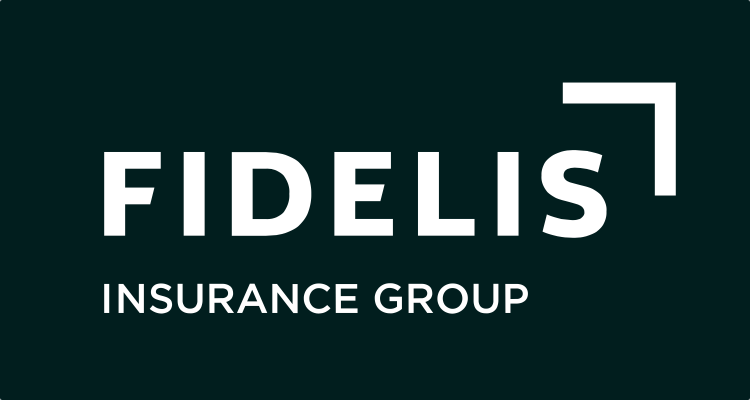Starting and running a food truck business can be an exciting and rewarding venture. The freedom to travel, serve delicious food, and create a unique brand experience is appealing to many entrepreneurs. However, with the flexibility of the road comes the responsibility of ensuring your food truck, employees, and customers are protected. That’s where insurance comes in.
Just like any other business, food trucks are exposed to a variety of risks — from accidents on the road to injuries on-site or potential property damage. But don’t worry! This guide will walk you through the best insurance options for food trucks, highlighting the essential types of coverage every food truck owner should consider. We’ll also dive into costs, benefits, and how to find the right policy for your specific needs.
Why Do Food Trucks Need Insurance?
Insurance for food trucks isn’t just a smart idea—it’s often a legal requirement. Food trucks face unique risks that differ from traditional brick-and-mortar restaurants. As mobile businesses, they travel through different locations, deal with food safety issues, and operate large, potentially hazardous equipment. Without the proper insurance coverage, food truck owners could face devastating financial losses in case of an accident, injury, or lawsuit.
Here are a few reasons why food truck insurance is essential:
-
Vehicle-related Accidents: Collisions, breakdowns, and other vehicle-related incidents are common risks.
-
Food-related Liabilities: Foodborne illnesses or allergic reactions can lead to costly lawsuits.
-
Employee Protection: Coverage for injuries sustained by employees while working.
-
Property Protection: Ensuring that your equipment and mobile unit are protected from theft, fire, or other damage.
Types of Insurance Every Food Truck Owner Needs
Food truck insurance needs vary depending on the size of the business, location, and operations. Here’s a rundown of the key types of coverage every food truck owner should consider.
1. Commercial Auto Insurance
Commercial auto insurance is arguably the most important coverage for food truck businesses. This policy covers the vehicle itself, protecting you from damage caused by accidents, collisions, or vandalism. It also covers the liability if you cause damage to another vehicle or property while driving your food truck.
Key Coverages:
-
Collision Coverage: Pays for repairs or replacement if your food truck is involved in an accident.
-
Liability Coverage: Covers bodily injury and property damage to others if your truck causes an accident.
-
Comprehensive Coverage: Protects your vehicle against non-collision incidents like theft, vandalism, or natural disasters.
2. General Liability Insurance
General liability insurance is essential for any business, especially for food trucks. It covers third-party bodily injuries, property damage, and advertising mistakes. For example, if a customer slips and falls while ordering food or if your food truck accidentally damages a customer’s car while parked, this policy will cover the costs associated with legal defense, settlements, or medical bills.
Key Coverages:
-
Bodily Injury Liability: Covers injuries to customers or pedestrians resulting from your food truck operations.
-
Property Damage Liability: Pays for damage caused to someone else’s property.
-
Personal Injury: Covers harm caused by things like defamation or slander.
3. Workers’ Compensation Insurance
If you have employees, workers’ compensation insurance is not just a smart choice—it’s typically required by law. This policy covers medical expenses and lost wages if your employees are injured while working, whether it’s a cut from a kitchen knife, a burn from hot equipment, or a slip and fall on the job.
Key Coverages:
-
Medical Expenses: Covers doctor’s visits, hospital bills, and rehab costs for injuries sustained at work.
-
Lost Wages: Provides compensation for workers who need to take time off due to injuries.
-
Disability Benefits: Pays for long-term injuries that prevent employees from returning to work.
4. Food Contamination Insurance
Food contamination insurance is vital for any food business, but especially for food trucks. If there’s an outbreak of foodborne illness linked to your food truck, it can lead to lawsuits, loss of business, and public relations nightmares. This insurance covers the costs associated with food recalls, legal defense, and the loss of income if you’re forced to temporarily shut down.
Key Coverages:
-
Foodborne Illness Claims: Covers legal fees and settlements if customers get sick from eating your food.
-
Recall Costs: Covers the cost of recalling food items and destroying contaminated stock.
-
Loss of Business Income: Reimburses you for lost revenue if your food truck has to close due to a contamination issue.
5. Property Insurance
Property insurance protects your food truck and equipment from damage caused by fire, vandalism, or theft. This is especially important given that food trucks often carry expensive cooking equipment, refrigerators, and inventory. Without property insurance, replacing your equipment after a disaster could cost thousands of dollars.
Key Coverages:
-
Building Coverage: If your food truck is damaged or destroyed in a fire or natural disaster.
-
Equipment Coverage: Covers kitchen equipment, cash registers, and other essential tools.
-
Inventory Protection: Protects your food supplies from theft or spoilage due to equipment failure.
6. Business Interruption Insurance
If your food truck is forced to shut down temporarily due to damage, illness, or a disaster, business interruption insurance helps make up for the loss of income. This can be especially useful for food trucks, as they rely on daily sales to stay afloat.
Key Coverages:
-
Revenue Loss: Replaces income lost due to unexpected events, such as repairs or a temporary shutdown.
-
Operating Expenses: Covers essential operating costs, such as rent or employee salaries, while your business is temporarily closed.
How Much Does Food Truck Insurance Cost?
The cost of food truck insurance varies based on several factors, including the size of your business, location, the type of coverage you need, and the value of your food truck and equipment. On average, food truck owners can expect to pay between $2,000 and $4,000 annually for basic insurance coverage.
Factors that affect the cost of food truck insurance:
-
Location: If you operate in a high-risk area, insurance premiums may be higher.
-
Truck Value: A newer or more expensive food truck will cost more to insure.
-
Coverage Limits: The higher the coverage limits you choose, the more you’ll pay in premiums.
-
Employee Count: More employees often means higher workers’ compensation insurance premiums.
How to Choose the Best Insurance for Your Food Truck
Choosing the right insurance can be overwhelming, but it’s crucial for protecting your food truck business. Here are a few tips to help you choose the best policy:
-
Assess Your Risks: Take a close look at your business and its risks. Do you travel a lot? Do you have employees? Are you at risk for foodborne illnesses? Identifying your unique needs will help you select the right coverage.
-
Shop Around: Get quotes from several insurance providers. Compare their coverage options, prices, and customer reviews to find the best fit for your business.
-
Bundle Policies: Many insurance companies offer discounts if you bundle multiple types of coverage, such as commercial auto and general liability insurance.
-
Review Annually: As your food truck business grows or changes, your insurance needs may evolve. Review your policy annually to ensure it still meets your requirements.
Conclusion
Food truck insurance is essential for safeguarding your business from the various risks you face while operating on the road. From vehicle accidents and foodborne illnesses to theft and property damage, the right insurance coverage ensures that you can continue serving customers without the financial burden of a major disaster.
Investing in the right insurance can give you peace of mind, knowing that your business and assets are protected. While food truck insurance can seem complex, understanding the different types of coverage available will help you choose the best options for your needs. Don’t hesitate to speak with an experienced insurance agent to find the coverage that’s right for you.
FAQs
1. Do I need insurance if I’m just starting my food truck business?
Yes! Even if you’re just starting, it’s crucial to have the right insurance to protect your investment, especially if you’re driving a vehicle and serving food to the public.
2. How much does food truck insurance cost annually?
On average, food truck insurance can cost anywhere from $2,000 to $4,000 per year, depending on your coverage needs and the size of your business.
3. Is workers’ compensation insurance required for food trucks?
In most states, if you have employees, workers’ compensation insurance is required by law. Check local regulations to see what’s required in your area.
4. Will my food truck insurance cover damage during a natural disaster?
Yes, but only if you have comprehensive property insurance coverage. It’s a good idea to review your policy to ensure it covers natural disasters like floods or hurricanes.
5. Can I get food truck insurance if I operate in multiple states?
Yes, but you may need to purchase additional coverage or modify your policy depending on the specific requirements in each state. Make sure to inform your insurance provider about the states in which you operate, as coverage requirements and laws can differ.
Please don’t forget to leave a review.


